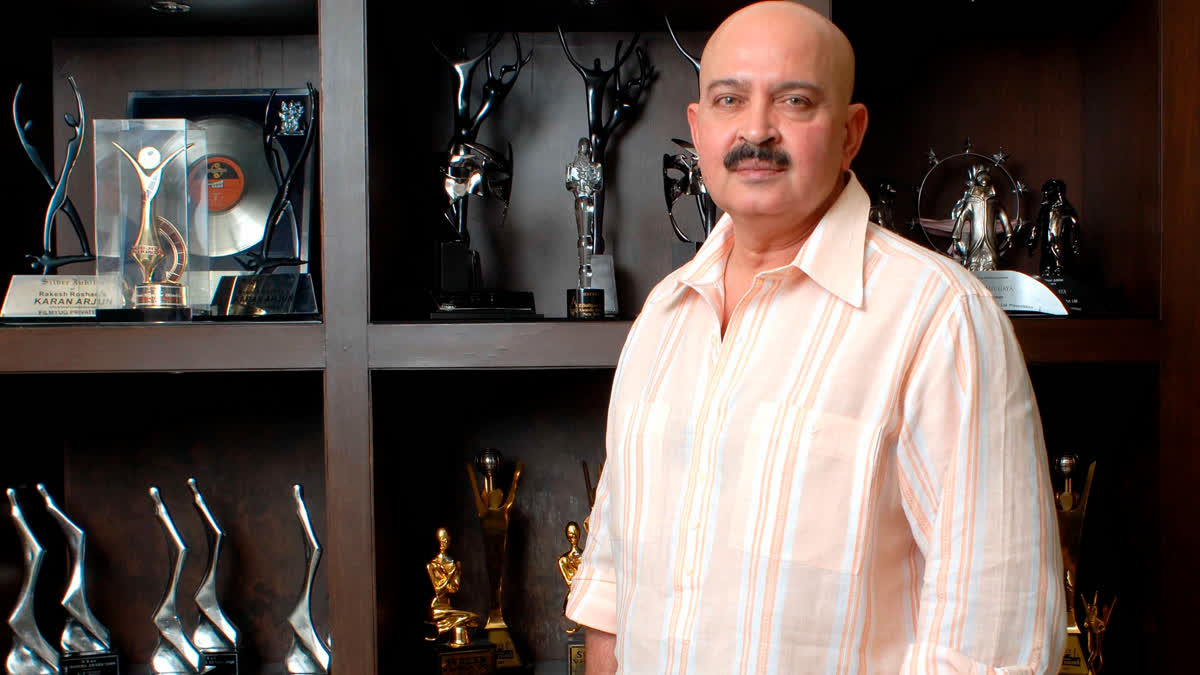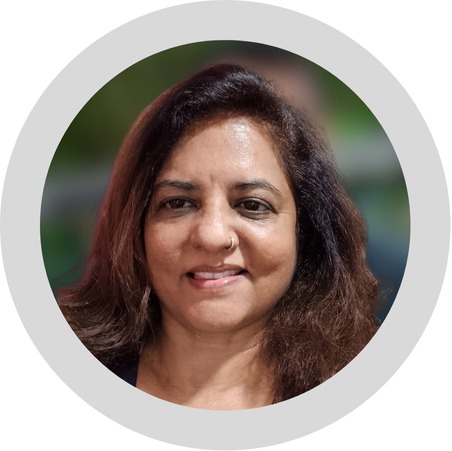From The Romantics, which put the spotlight on the legacy of Yash Raj Films, to The Angry Men, an ode to the legendary duo Salim-Javed, and the documentary on singer-rapper Yo Yo Honey Singh: Famous, the trend of celebrating the legacies of Bollywood trendsetters, chronicling blockbuster histories continues with recent The Roshans.The Netflix documentary The Roshans documents the trials and triumphs of Bollywood's iconic Roshan family — spanning three remarkable generations -- musician Roshan Lal Nagrath, his sons, music composer Rajesh Roshan and film director-actor Rakesh Roshan, and Rakesh’s son Hrithik Roshan. Apart from the Roshan family, the four-part docu-series features industry stalwarts like Shah Rukh Khan, Sanjay Leela Bhansali, Karan Johar, Shatrughan Sinha, Anupam Kher, Javed Akhtar, Farhan Akhtar, Abhishek Bachchan, Asha Bhosle, Suman Kalyanpur, Sonu Nigam, Usha Mangeshkar, and Kumar Sanu, among others.
Unlike his musician father, who died in 1967, Rakesh started his journey in Indian cinema as an assistant director and later made his debut as an actor in the 1970 film Ghar Ghar Ki Kahani. He further went on to star in films like Khubsoorat, Khel Khel Mein, and Khatha Meetha among others. Rakesh then embarked on a directing career, making hits such as Khoon Bhari Maang, Karan Arjun, Kaho Naa... Pyaar Hai, Koi... Mil Gaya, and Krrish series.
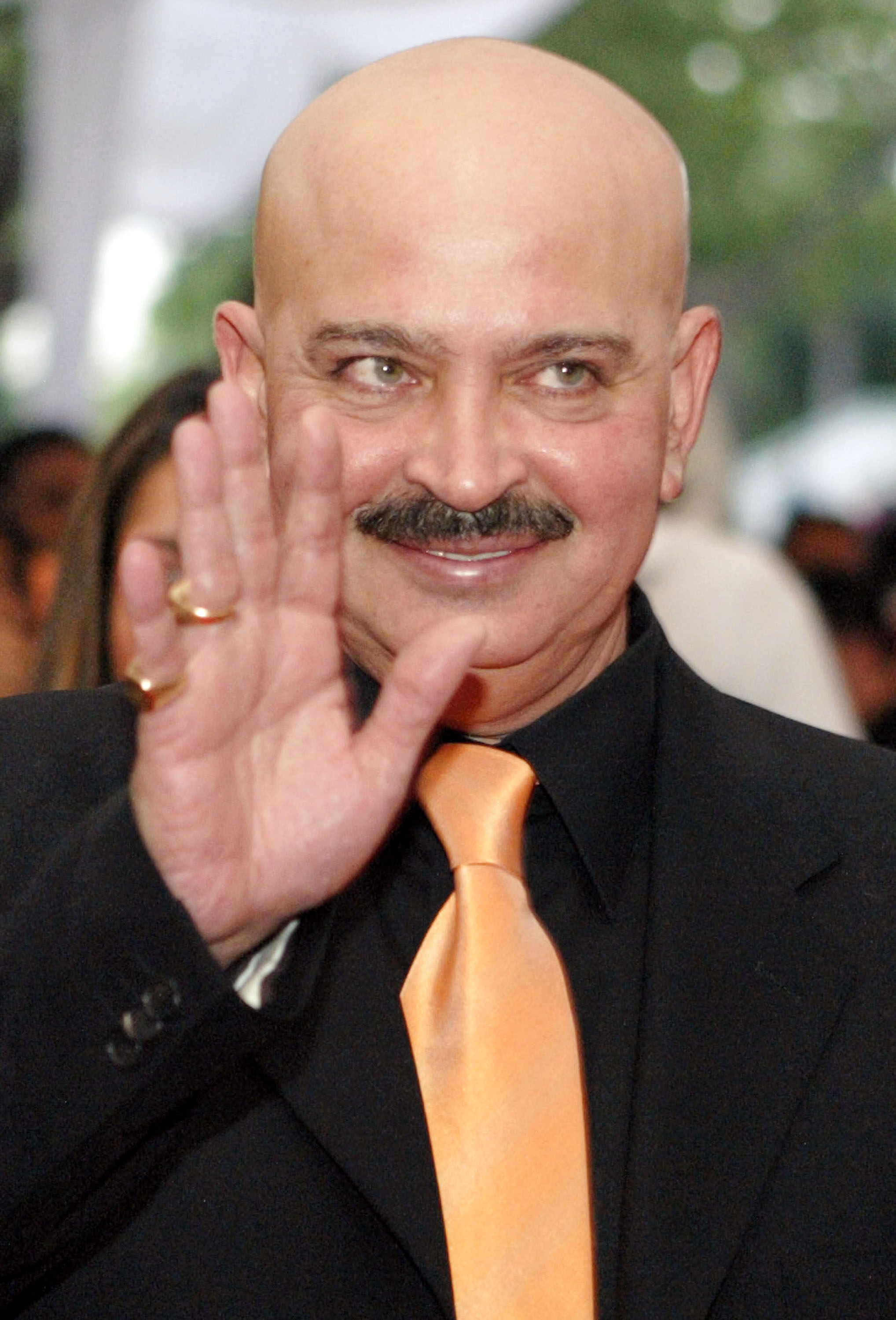
In a tete-e-tete with ETV Bharat, Rakesh Roshan talks about what went into the making of the documentary, the re-releases of his films and difficulties filming Karan Arjun as the lead actors Shah Rukh Khan and Salman Khan had little faith in the film.
How come you only had your father [music composer Roshan Lal Nagrath] in mind when you set out to make this documentary The Roshans? Didn’t you consider yourself, your son Hrithik and brother Rajesh Roshan to be achievers?
Maybe it is in our DNA that we don’t want to tom-tom our achievements, we have always believed that let our work speak, why talk about it? But now I feel it is high time that we should come out and talk about our struggles. The audience sees only the rosy picture, it is not that, we are very homely people like any other family. But the idea for this documentary happened about seven years ago when I found an old transistor, which had old songs of many renowned musicians. There were 5,000 to 10,000 songs, songs of all music directors and actors and when I couldn’t find any of my father’s work, I was amazed. I felt very sad and hurt, it gave me sleepless nights. I was wondering how this could be possible when he gave such lovely compositions to the industry and to the world. Not even one song of his was there. I wanted to bring his name back; he has given such soulful music. I was feeling restless and disturbed. Then one day I was talking to Shashi Ranjan [the director of the docu-series], at an event and he gave me this idea that why don’t I make a documentary on my father. I liked the idea. After two to three days, I felt people might not visit his documentary so let us make a docu-series on the Roshans where all of us – my brother, Rajesh, son Hrithik and I are also there. People will come to hear us and they will hear my father’s music also. But the main reason for this documentary was to revive my father’s name and therefore, we have the first episode dedicated to my father so that this generation gets to know about him. There are people who are listening to his songs even now but they don’t know whose music it is. And with all of us featured it becomes a wholesome package for the audience to learn about our contribution to the film industry.
Like Javed Akthar says in his interview in the documentary – ‘Roshans apna danka nahi peetthe hain …’
Yes, he understood and said it right, that is how we Roshans are.
You have said that you were welcomed by industry people because of your father’s achievements and that he was a highly regarded music director in Bollywood ...Tell us something about that. [Unlike his musician father, who died in 1967, Rakesh started his journey in Indian cinema as an assistant director and later made his debut as an actor in the 1970 film Ghar Ghar Ki Kahani]
[Sounding a bit excited] Ya, ya ...when he left us, both me and my brother were very young. Back then, I didn’t know what was happening around us. We were kids and all I remember is we would just watch him work. It was only after my father passed away and I began work as an assistant director, I realised my father is such a big name. I used to go to this Naaz building [South Mumbai] where 99.9 percent of producers and directors functioned from and had their offices in this building. So, when I would be waiting to meet these filmmakers, the peon would ask my identity and I would say, ‘I’m Rakesh, Mr Roshan’s son’ and I was immediately called inside and those big filmmakers would stand up as a respect for my father and meet me. Producers would respect me and offer me work because of him. So, from there onwards I decided to change my name from Nagrath to Roshan and that is how I became Rakesh Roshan. Because of the respect he left for us we had this responsibility to carry on this legacy forward and make him a part of our career.
What is the best compliment you have received from people and the industry folks after having watched The Roshans?
I have made 17 films in my career but I never got so many messages after this documentary started streaming. It was so heartening to hear when people said, ‘Oh, we didn’t know that these wonderful melodies were composed by your father!’ Some even didn’t know my brother Rajesh’s certain compositions. It’s fine that they had seen the films directed by me and they are my and Hrithik’s fans but the compliment that my father got made me immensely happy and I’m so glad that I could do something for him.
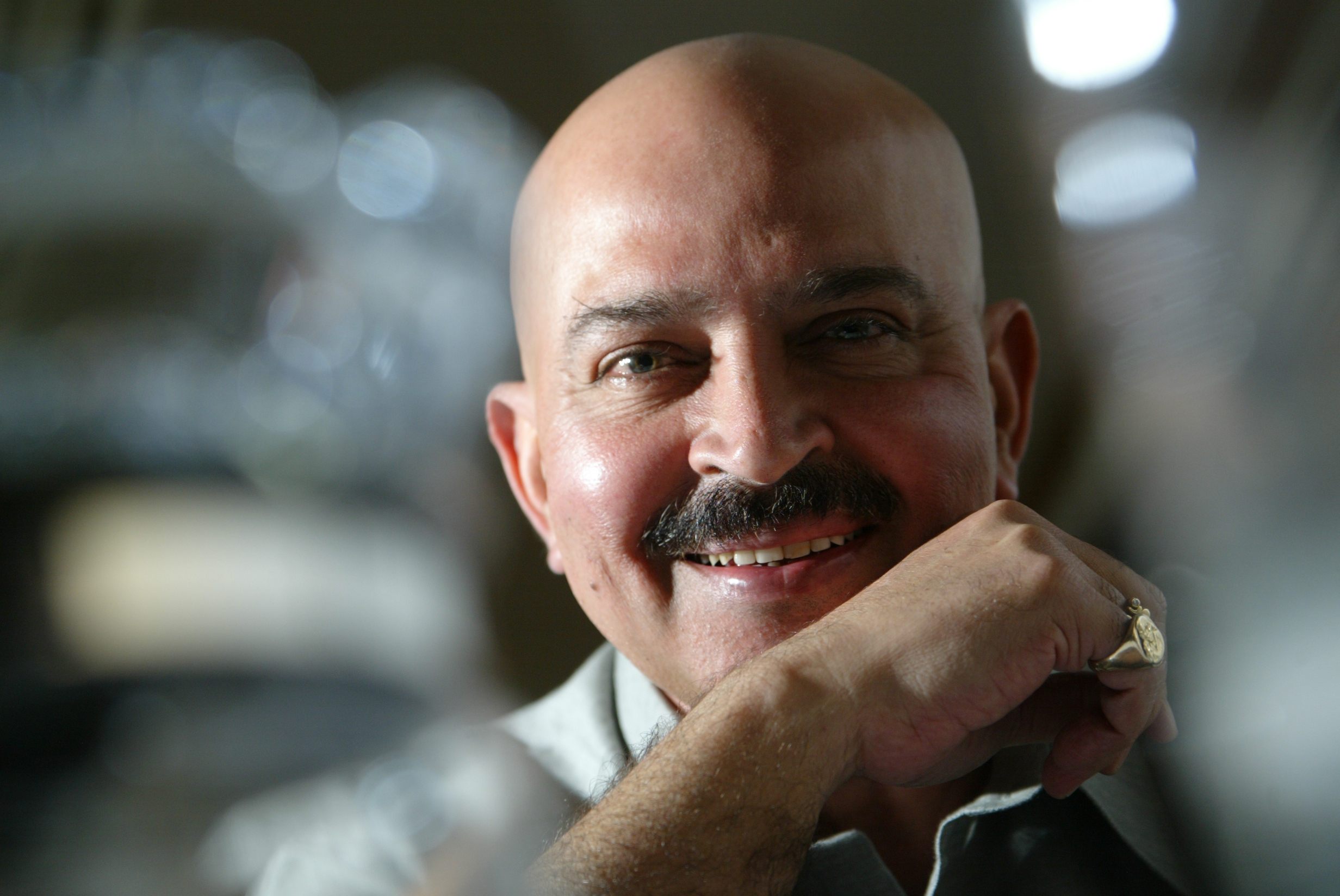
What was the most difficult aspect to talk about? Were there places where you had to drop the guard and become totally candid for this documentary?
No, no, nothing was difficult as such because I just left behind my name and became a common man .. I became a son, I became a husband, I became a brother and I became a father ..and as a common man I have just narrated my story without blowing trumpet about my work. And what you have seen is only four hours but I have spoken a lot, there is about 100 hours of footage. I have spoken about many more things which we couldn’t retain due to time paucity as there were some guidelines by Netflix. By public demand we will ask them to make another part …we can continue ..[laughs].
What was the reaction of your grandchildren –what do Hrithik’s sons have to say?
They, too, didn’t know anything about their grandfather and they also learnt a lot after seeing The Roshans. Somewhere at the back of their minds they must be thinking and wondering, ‘Ohh my grandfather was born in a garage! How he started out and where he reached ..’ They also must have got inspired by watching the documentary.
What was the learning experience, what was your takeaway after everything was done?
When I saw the first copy of all the four episodes together, I got this feeling – ‘My god, we have contributed so much to the industry!’
What do you feel about your films Karan Arjun and Kaho Naa… Pyaar Hai being released again? The footfalls even after so many years are still so good …
I am happy that I made films on unconventional subjects with a lot of conviction and made people believe and that is the biggest achievement for a filmmaker. I made two subjects -- Karan Arjun on reincarnation and Kaho Naa… Pyaar Hai with a newcomer in a double role and that also I consider to be a big achievement. Re-releasing these films is just a celebration. What figures it has done then; no films have done. That’s 25 years back.
This brings us to you talking about how filming Karan Arjun was a difficult process as Shah Rukh Khan couldn’t relate to the story and both SRK and Salman had little faith in the film, they lost interest at one point …
And when he [SRK} came back to do the film, he told me he was still not convinced by the story, but he’d do whatever I wanted him to. And then after a few years, he made Om Shanti Om, which was also based on reincarnation.
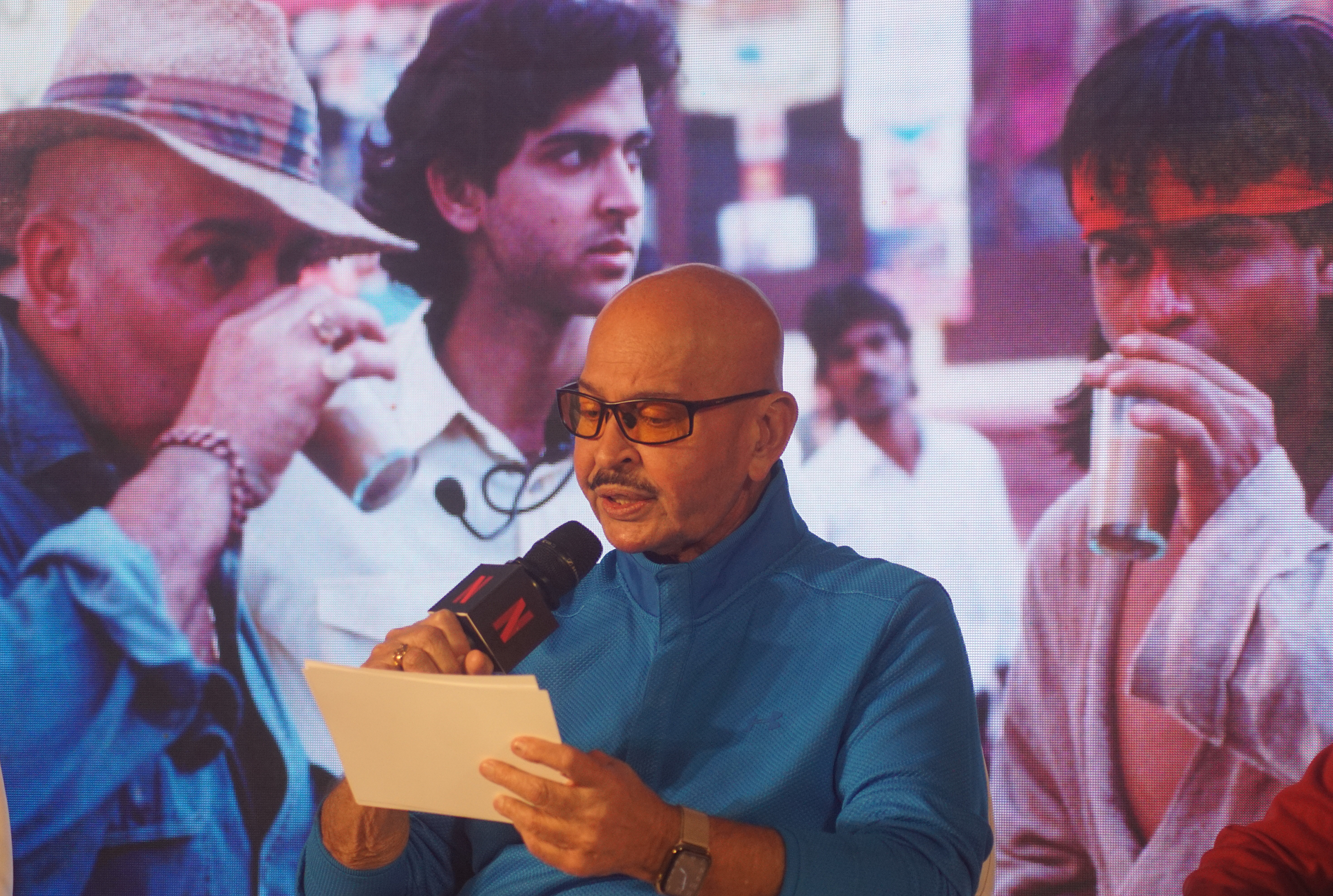
Were you able to invite everyone concerned to be part of this documentary, or do you feel you missed out some people?
I got everybody in the documentary who had worked with me and Rajesh. From my father’s time there was only Asha Bhosle, Suman Kalyanpur, Sudha Malhotra, Anandji …so we could bring only those four or five people who had worked with my father. But whoever worked with me and Rajesh we invited all those people and they all were happy to contribute because they also must have felt somewhere, ‘Yes, the Roshans need recognition’. We have goodwill and only on one phone call did they come to talk about us and our association. If our work wasn’t good the industry folks wouldn’t have come, they would have given some excuse.
It is not easy to take a legacy forward and have so much talent in three generations.. What’s the success mantra?
The only mantra is that we are all very hard-working, we want to achieve something in life and we leave no stone unturned.
Read More
